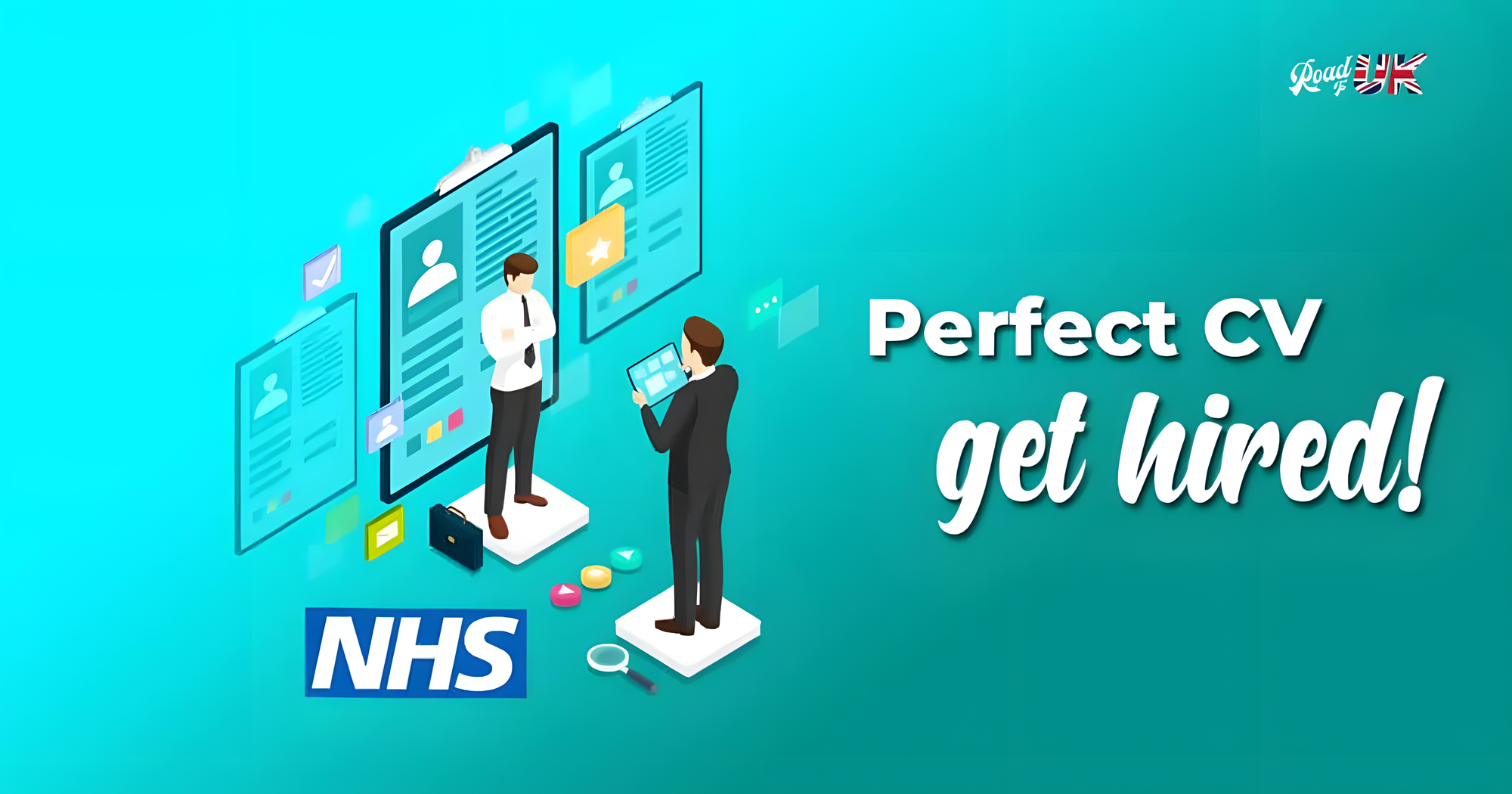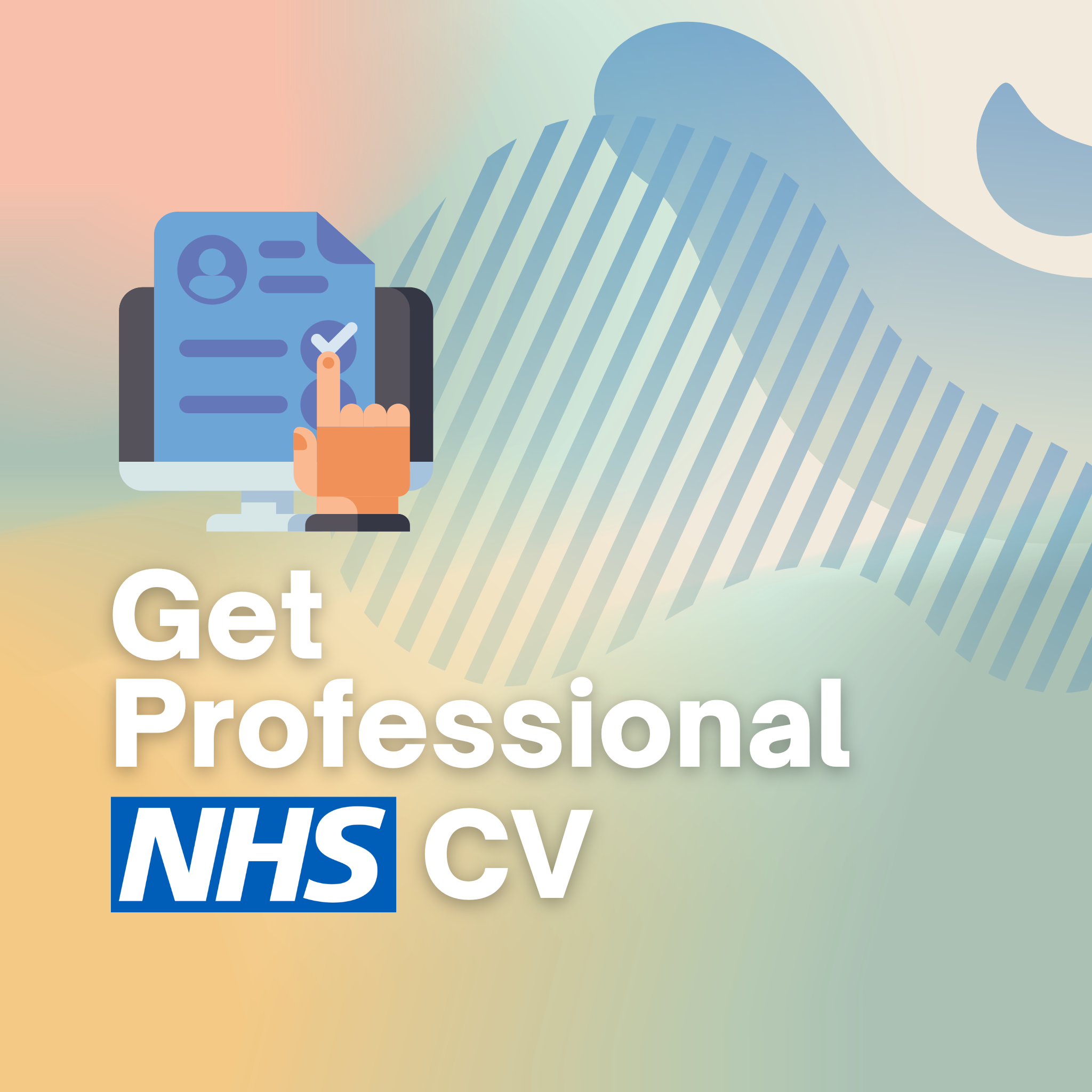Creating the Perfect CV for NHS jobs

I know you must be excited about how to proceed now that you’ve completed a series of hurdles to get to where you are now. The next obstacle to face: getting a job. This is not an easy task. Sure, far be it from me to tell you that there are not thousands of job openings available and that the NHS is not hoping that many doctors apply. However, there is one thing you must keep in mind- how you create a perfect CV for NHS jobs to present yourself is extremely important.
Why do I need a CV for NHS jobs?
So you may be asking yourself that already. Not every job advert asks for a CV, but some do, and there is no harm your keeping one handy just in case, especially if you get called in for a job interview, or an HR wants it for documentation.
Also going through this article you will find out what things make a difference in your NHS jobs application. It can also help you populate answers in the online application form in your NHS jobs profile.
Different parts of the CV
Ensure your CV is professional, succinct, and well-laid out. The skeleton of your CV for NHS jobs will consist of:
- A header
- The objective/ Profile
- Your educational qualifications
- Any training courses/certifications
- Medical experience/jobs held
- Research/ Audit/ Clinical governance done
- Teaching experience
- Management/leadership experience
- Team working
- Volunteer work/ Extracurricular experience
- Linguistic qualifications
- Skills
- Interests
- References
The list what I’ve made here is of my own making; feel free to work with the order you feel comfortable with. If you’ve noticed, you can fill a few of these headings with what you’ve put in your NHS jobs profile. The only difference is that there is no word limit here. Also, you might be wondering I don’t have this or that, what do I write here- no worries. I’ll cover everything to the best of my ability.
1. Header
Let’s start with the header. It is made up of-
- Name
- Address
- Contact no
It would be ideal to ensure you have a professional email, something preferably with your name in it rather than a ‘fun’ email. For instance, try for an email like dr.john.doe@gmail.com versus party_all_nite@hotmail.com. It would also be a good idea if you were to provide a local UK mobile number and address. Please ensure the address you provide can be proved by a tenancy agreement or a letter or a something to that extent as your employer may need it to be verified. If you can’t manage that, just give any address that you can prove (home address is absolutely okay).
2. Objective / Profile
Next is the objective. What you need to explain here is, briefly, what you’ve done so far (related work experience) and what you hope to do in the future, and why you are applying for this job; a summary, a quick look. For example,
“I have completed my internship training/worked as a medical officer/ [your post] for [duration] at [hospital name]. I rotated through various specialties/ worked in [this] department. Out of all these specialties/ During working there, I discovered my interest in [that] field because this offers [reason]. This is why I’m applying for this job. Being organised and working hard, I want to see myself as a better doctor in the years to come.”
Sharp. Simple. Short.
You will get to explain the whole thing in the following headings, but this introduction gives the reader a fair idea about you just at the start.
3. Educational Qualifications
Isn’t it just a boring table with columns and rows?
Yes and no. You will definitely put everything in your CV for NHS jobs in a table, but there are so many ways you can format it to stand out and get your information across. For example,
- Make a border less table, everything looks well aligned minus the ugliness of the crowded lines.
- Put the years you obtained your degrees in the first column rather than your degree or institution.
- Bold the degree names, and write the institution’s name under that, and the year you obtained it in another column in the same row.
You can follow past to present or present to past. I personally think present to past is a better idea.
4. Training courses / Certifications
Same thing goes like educational qualifications. Make a table preferably as the same format as above.
There is always a debate about whether or not to attend any sort of a BLS course beforehand to bolster the CV for NHS jobs. One can argue that it is a waste, but I found more response in my interviews after doing one, and it only cost £35 to attend for a validity of one year. Follow this link to sign up for an Adult Basic Life Support course. Courses like ILS/ALS/ALERT can be done after you’ve started working as many trusts cover the cost, but if you still wish to complete them, ensure they are ResusUK certified.
If you’re taking ALS soon, check out our post on how to prepare for ALS.
I have no certifications/training courses!
It’s completely fine. You can just drop this heading and move on to the next one.
5. Medical Experience
This is where you get the chance to explain at length what you told in your profile at the beginning. Here also you can take that present to past approach. Be sure you mention the following things:
- Your post
- The hospital that you’ve worked in
- Duration of your job
- Your job description there, i.e. what you did there. Make it a bulleted list. You can face a difficulty here sounding very repetitive with “I did that….”, “I followed up patients…”, “I performed these procedures…”.
Try dropping the “I” here;
“Admitted patients…”, “Performed this…”, “Communicated with people…”, “Helped junior colleagues…” – it tells the same story but comes across as more professional.
One job experience can follow another. Follow the same pattern of describing all your medical experiences in your CV for NHS jobs.
6. Research/ Audit/ Clinical governance experience
Again here, if you don’t have it, you don’t have it. Skip it. Yes, these make you a better candidate, but if you didn’t do it back when you had a chance to do it, what can you do now? You will have greater chances to involve yourself in these activities when you start working in the UK. Audits from back home will also be accepted. If you’re unsure on where to start, see our article on understanding audits and QIPs.
During the interview, if you are asked what do you think you need to improve about yourself? Or what do you think your shortcomings are? – you can just take this opportunity and say you need to take part in audits and research more.
I’ll advise you to read up about audit, research, clinical governance, and related topics and how it helps health care both clinically and non-clinically.
I would highly recommend purchasing and reading the book Medical Interviews: A Comprehensive Guide to CT, ST & Registrar Interview Skills
7. Teaching Experience
If you have a formal teaching qualification, you can mention here with the experience of teaching. But even your informal experience of teaching undergraduates during your ward rotations can also be mentioned here. You should include when you taught and what you taught them. If it’s informal, there is obviously no proof, but you can still mention it here.
8. Management & Leadership Experience
Same as the NHS jobs profile. If you find it difficult how to write it, here are some tips:
You can give one or two example, elaborating-
- The situation- what happened,
- The task that needed to be done – the challenge,
- What you did- your action that proves the point,
- The response- the outcome of your action.
I’m sure if you’ve worked as a doctor anywhere, you can find multiple examples in your life. Just word it nicely and follow the above skeleton.
9. Team work experience
These actually create the bulk of your CV for NHS jobs. No, these aren’t NOT important. This, including management and teaching experience, paints a picture of how you are as an employee in the workplace.
Follow the same skeleton above to write one or two examples where you’ve showed you’re a good team player.
10. Volunteer work/ Extracurricular experience
If you don’t have it, you don’t have it.
Just make sure to follow the same format as you’ve explained your medical experience.
11. Languages
You know what languages you are fluent in. Also add languages where you have limited to moderate proficiency.
12. Skills
No, don’t talk about your football/basketball skills here. It’s nearly at the end of your CV, and to say it bluntly, you need to sell yourself a bit further. The things that should populate your “Skills” heading are unknowingly given to you. The job description and person specification. Yes, that document has a list of skills that they want from you, it can be anything starting from good communication skills to being tech savvy. Read that and fill this section up accordingly.
If you don’t know where to find the job description and person specification please look here how to apply for jobs in the NHS, to see a breakdown of a job advert.
13. Interests
The final personal touch. Now, you can talk about football/ basketball/sports and all. Movies, music, dance, art & culture- anything that you are interested in or anything that relieves your stress- goes here.
Just a tip here, keep it short and professional. You’re not writing a letter to your friend or a dating profile.
14. References
Personally I don’t like the idea of writing all my reference details if not requested specifically, as those are privileged information among myself, my employer’s HR and my referees.
Just type “Available upon request”, which is more than enough. You can always email your referees’ details if they request it later on.

Get Your Professional CV Written
Even when you are applying for jobs through online portals, a professional CV always makes a good impression on the recruitment team. It summarizes you as a whole and makes their job easy.
Also in case of MTI applications or in any other cases when you are NOT applying through an online portal, a well-written professional CV is very important.
To conclude
It wasn’t that complicated, was it?
The last tip, DO NOT send your CV in a doc/docx format, ALWAYS send it in a PDF format. Foxit reader or most of the readers have the option to make a new PDF from any word document. I personally use Nitro PDF to work with PDFs.
Now that you have a good CV, the only thing that remains is nailing the interview. Check out The Interview: Part 2 of 3 for an introduction to the common interview questions.
Frequently Asked Questions
How long my CV should be?
In NHS jobs online application, all the text boxes have work limit but when you are submitting one written like this, there is no limit. Make sure you keep it succinct.
What can I put on my CV to make it stand out?
Be yourself and write your own words. Don’t copy-paste of blindly write whatever you see on different blogs and Facebook posts. That’s a sure way that your CV will look like someone elses’s. Follow different structures and fill those by your own words. Use spell and grammar checking software.
What should not be included in your CV?
We have seen people write how backward and underdeveloped their country’s healthcare system is and how great UK healthcare is in their supporting information. Completely unnecessary.
Also, talking about personal circumstances and struggles in life should also not come up in your job application. We have painfully read some supporting information where IMGs are practically begging for a job. Very unprofessional.
Can I get your CV template?
No. That is how your CV will be like hundreds of others. Follow the headlines in this article and write a few words to a few paragraphs under each title. There you go, you have a template now.
Good luck!

